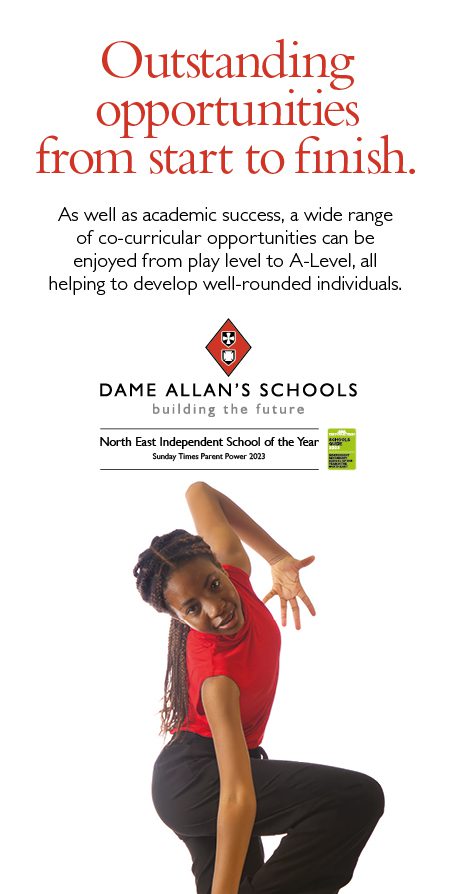By Geoffrey Stanford, Headmaster of Newcastle Royal Grammar School.
Young children often ask the most fascinating questions. I distinctly remember one of my boys at the age of four asking questions such as, what is the colour of molecules, why there is a gap between an aeroplane and its vapour trail or what is the Japanese word for hospital. At the last of these, when I asked why he wanted to know, he just said, “because I don’t know.”
Such inquisitiveness is very much to be encouraged, particularly in the face of exam specifications dictating what students “need to know to pass”. I have often observed that those who retain their curiosity for why things about them are as they are, tend not only to be more successful in life but also more interesting to be with.
At the time of writing, I have been listening to a number of students presenting their findings and reflecting on the process of researching and writing up their 5000 word Extended Project Qualification (EPQ) report. Each year I act as EPQ supervisor for a set and then as internal assessor for several students from other sets. This opportunity to stay close to what goes on in the classroom is something I thoroughly enjoy and the EPQ itself is a tremendous opportunity for students to find out in depth about something that they choose which genuinely interests them.
Over the years I have supervised projects as varied as the importance of panda conservation, the medical applications of wearable heart rate monitors, methods of cleaning the great pacific garbage patch, the psychology of serial killers and the factors affecting the take-up of the MMR vaccine. Unlike in most other courses that students take at school, they are given the time (something like 120 hours is recommended) to find out in detail about their topic area, identify a question that is worthy of study and write up their findings.
While the topics students choose may build on an element of their existing A-Level courses or perhaps relate to a subject they may want to pursue at university, it never ceases to amaze me quite how broad and varied the interests of our students are when given free rein.
Completing an EPQ is not easy and every year some candidates will make a start but decide that it is not for them. However, those who have the resilience to complete such a major piece of research are developing skills that will serve them well at university and beyond. Indeed, many universities recognise the benefit of the EPQ, often giving a slightly reduced offer to candidates with a good EPQ grade.
During the EPQ process students learn how to conduct research, with some carrying out primary research themselves to support their desk based secondary research. They have to consider which sources of evidence are more current, relevant, accurate, authoritative and unbiased. At times students can find it intensely frustrating when they haven’t yet identified quite what the interesting point of debate is.
The challenge is figuring out what they should focus on from their initial ideas, or when they cannot get hold of specific source of evidence to support a particular argument, or when they try with varying degrees of success to make contact with an expert in their field to interview them.
Learning by doing, students also develop their project management skills. Typically, when creating their project plan, students underestimate how long things may take, for example, evaluating their sources, proofreading their report, or ensuring that all references and citations are properly documented. Interestingly, the marking of an EPQ is as much about how candidates have managed the process and their reflections of what they have learnt, as it is based on the final delivery of a quality product.
To cap it all, students must stand up to explain and justify their conclusion in front of a live audience whose questions can really test the depth of their understanding of the topic; and yet, even when challenged, students are usually able to support their arguments with evidence and defend their position. It is in these moments that their love of learning really shows through!
www.rgs.newcastle.sch.uk

